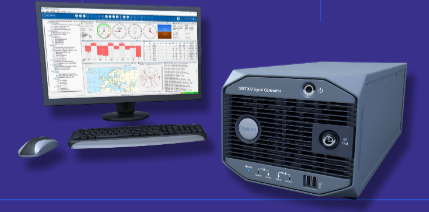
Bangalore – December 06, 2024 – Spirent Communications, the leading provider of test and assurance solutions for next-generation devices and networks, today announced the role of its positioning, navigation and timing (PNT) simulation systems in the creation of a ground-breaking new automotive positioning standard in China. The newly announced GB/T 45086.1-2024 standard sets out the recommended technical and test requirements for on-board vehicle positioning systems such as GNSS and is expected to be adopted as part of China’s Accident and Emergency Calling Systems (AECS) framework. Spirent’s expertise and simulation technology were instrumental in assisting with the development of the new GB/T standard.
“Regulating the performance of PNT, particularly GNSS, is a hugely important topic across a range of industries and technologies and it’s great to see China taking steps to accelerate the implementation of robust and precise systems,” said Adam Price, Spirent’s vice president of PNT Simulation. “These new GB/T specifications open a whole host of possibilities for automotive enhancement. With Spirent’s leading-edge expertise and test solutions, the design and implementation of improved PNT performance moves from goal to reality.”
The introduction of this latest GB/T standard marks a pivotal moment for automotive sector safety and positioning accuracy. It is expected to underpin the forthcoming AECS framework, which will become a regulatory requirement for all vehicles being sold in China from next year. As China’s equivalent to the European eCall, AECS will ensure rapid response in car accidents, potentially saving many lives. By establishing rigorous benchmarks for positioning systems, the new standard aims to enhance the reliability and performance of these critical positioning components. It also has the potential to provide the groundwork for regulation of autonomous vehicles on public roads.
Spirent’s technology and expertise was instrumental in the development of the new positioning standard, and major test houses in China use Spirent simulators and test scenarios to qualify positioning capabilities. This includes Tianjin Automotive Test Center (TATC), China Automotive Engineering Research Institute (CAERI), and National Automobile Quality Supervision and Test Center (NAST).
As well as impacting Chinese automotive ecosystems, there are global implications for the automotive sector. Should the standard become mandated, it will be required for all vehicles being sold into China, impacting global automotive brands and their supply chains. It is anticipated that early adopters of the automotive positioning GB/T could gain a significant competitive edge in the market by ensuring conformance and enhanced customer satisfaction through improved performance.
For more information on the new standard and Spirent’s positioning, navigation, and timing test solutions for the automotive and autonomous vehicle industry, visit https://www.spirent.com/solutions/pnt-autonomous-vehicles






